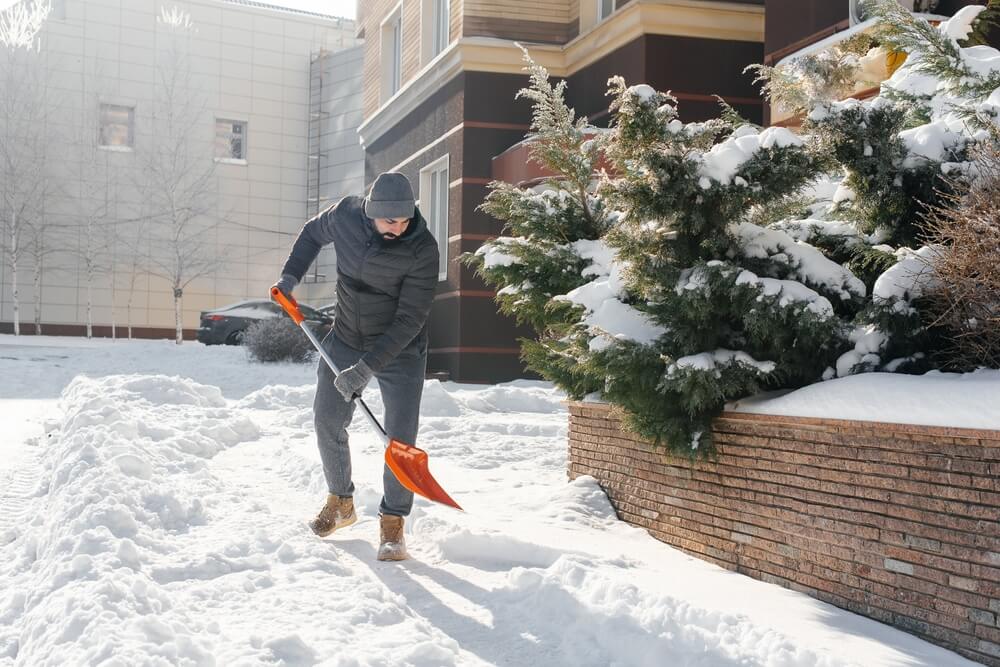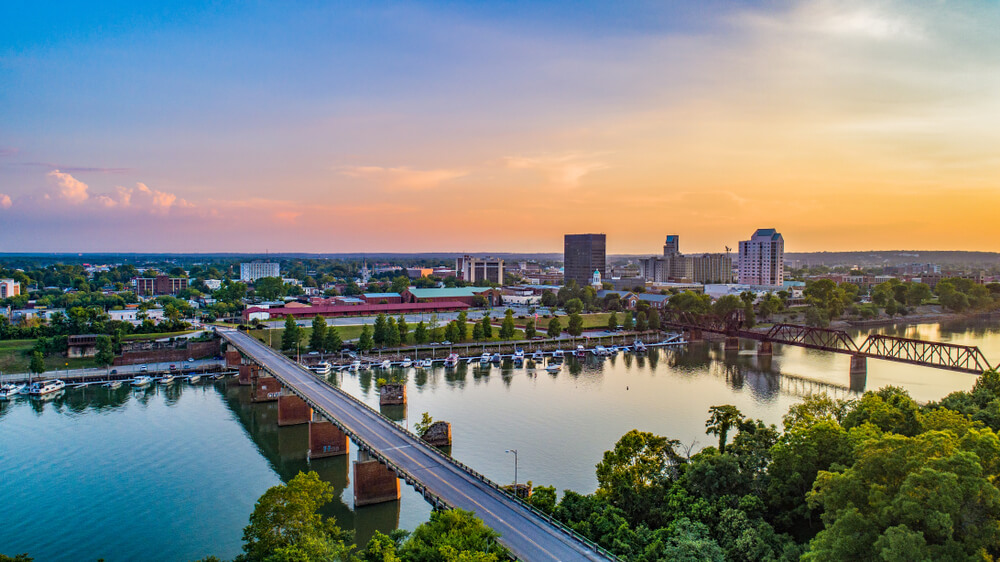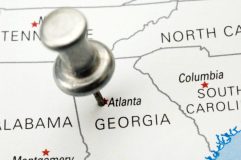Why Home Insurance Rates Vary Across Georgia
Hey there, fellow Georgians! Ever scratched your head wondering why your home insurance bill looks like it does?
Maybe you’ve compared notes with your neighbor and thought, “Why on earth am I paying more than them?”
Well, grab a glass of sweet tea and settle in because you’re about to dive into the nitty-gritty of why home policy rates vary so much across the beloved Peach State (and how you might be able to save a bit of cash as you go shopping for your next policy). The average home insurance cost in Georgia for a $300,000 home is $1,950 annually. Where does your policy cost fall when compared to the average.
What Affects Home Insurance Cost in Georgia?
To understand what affects home policy rates in Georgia, you need to think about it from the other side: the insurer itself. Underwriters — the folks who figure out whether to sell you a policy — and actuaries — those human calculators who figure out how risky that policy might be — pay close attention to location, the risk of natural disasters, climate change, and your personal reliability, usually based on a history of prior claims and your FICO score.
Location and Regional Differences
You know what they say: location, location, location! And boy, does that ring true when it comes to home policy rates in Georgia. Living in downtown Atlanta is a whole different ball game compared to a quiet town like Dahlonega. That’s why it’s a bit hard to understand the average home coverage cost in Georgia — it depends!
Think about it — cities like Atlanta and Savannah are bustling hubs with more people, traffic, and, unfortunately, higher crime rates. Insurers see these factors and think, “Hmm, more risk.” That means higher premiums for city dwellers. Of course, safer pockets of cities are there, too, so the average underwriter may also consider your ZIP code. Not understanding this is one of the many common home insurance mistakes people make (but there are ways to avoid them).
On the flip side, if you’re nestled in the peaceful countryside of Madison, you might enjoy lower rates. But hold on. It’s not always that simple. Rural areas can sometimes be farther from fire departments or emergency services. Ever thought about how long it would take a fire truck to reach a farmhouse out in the boonies? Insurance folks definitely have, and it affects what you pay.
Natural Disasters and Climate Factors
What keeps insurers up late at night? It’s a pretty simple answer: The risk that a major storm blows through a region where your clients live. Storms, freak hurricanes, and other events can lead to massive damage — AND massive losses from the insurance company’s perspective. It’s also really important for you to ask this question: What does homeowners insurance cover? Does it cover natural disasters? Will it fix that heavily-damaged roof?
Remember when Hurricane Michael blew through Georgia in 2018? You can bet that the calculations on the risk of policies in the southern parts of the state changed.
If you’re living along the coast in places like Brunswick or Tybee Island, then you’re more prone to hurricanes and flooding. Insurers aren’t exactly fans of footing the bill for waterlogged homes every hurricane season, so they hike up the rates to cover potential damages.
Even inland areas aren’t spared. Folks in North Georgia know all too well about those sudden ice storms that can bring down trees and power lines faster than you can say “snow day.” These regional climate quirks play a big role in determining how deep you have to dig into your pockets for home coverage.

The Effect of Local Real Estate Markets
Other factors include the local market. The more expensive the property, the more expensive the policy needed to cover that property. Construction costs matter, too. If your neck of the woods has higher property values and higher cost of labor, you can expect that to be reflected in what you pay for your monthly premium.
Older homes carry their own risks, too, of course. They tend to have more problems — and problems create headaches for claims adjusters.
Homeowner Claims History and Credit Score Impacts
Alright. Time for some real talk. If you’ve filed multiple claims over the years — maybe that kitchen fire last summer or the time a tree decided to lounge on your garage during a storm — insurers might see you as a higher risk. It’s kind of like how your premiums go up after a claim following a vehicle accident.
And here’s a kicker: your credit score plays a part, too. Surprised? Insurers use your credit history to predict how likely you are to file a claim. So, if you’ve got a credit score that’s shinier than a new penny, you might score some lower rates. If not, well, maybe it’s time to give your credit report some TLC.
Specific Coverage Needs for Georgia Homeowners
Let’s break down the menu of coverage options. Shall we? Standard policies usually cover things like fire, theft, and some weather-related damages. But living in Georgia, you might need to consider a few extra toppings on your insurance pizza.
Standard vs. Optional Home Insurance Coverages
For those in flood-prone areas like Savannah, standard coverage won’t cut it — you’ll need separate flood coverage. And you don’t want to find that out the hard way when your living room turns into a swimming pool.
You might also want windstorm coverage as well as personal property coverage if you own expensive things like high-end electronics. An agent can help you figure out what makes the most sense for your unique financial situation, of course!
High-Risk Areas and the Georgia FAIR Plan
Sometimes, you just can’t get coverage. Maybe your area is too risky for insurers to want to underwrite a policy. Maybe you’re in a coastal area where hurricanes regularly create “problems.”
Whatever the case, you just can’t find protection for your property. Not protecting the home that protects you is not an option. Thinking about replacing what is likely the biggest purchase you’ll ever make out of pocket is one reason why homeowners need insurance.
The good news is that the Georgia FAIR Plan (Fair Access to Insurance Requirements) can help you get coverage.
While a last resort, these plans can really come in handy if you’re struggling to find a company that will cover you.
Cities vs. Rural Areas: A Pricing Divide
More and more Americans continue to move into the cities. As a result, property values are going up. And just like the Ferris wheel at Centennial Park, they’re climbing FAST.
Here’s what you need to know.
Atlanta’s Skyrocketing Rates: Why It’s Happening
Atlanta’s growing faster than kudzu in summer. More people means more houses and more cars — and, unfortunately, more claims. You also see a lot of older housing stock in the city. That means insurers will see only one thing: higher repair and renovation costs. Unsurprisingly, this means that insurers will be a bit more hesitant to write affordable policies there.
Comparing Cost Variations Across Georgia
Now, compare that to a charming town like Thomasville. Fewer people, less traffic, and lower crime rates can contribute to more affordable rates. But then again, if Thomasville has older infrastructure or is prone to certain weather events, that could offset some of those savings.
In Augusta, proximity to the Savannah River brings its own set of concerns, like potential flooding. Meanwhile, up in Gainesville, hailstorms can be a real headache. It’s fascinating how diverse our state is and how that diversity impacts something as mundane (but important) as home coverage.

Strategies to Navigate Premium Costs
You have two basic strategies for reducing your premiums in Georgia: Making sure you customize your policy to meet your specific financial needs (with the help of an agent) and taking advantage of all the discounts for which you qualify.
How Policy Add-ons Impact Your Rates
One way to manage your insurance costs is by being smart about your policy add-ons. It might be tempting to add every bell and whistle. But do you really need earthquake coverage in Georgia? Nah — you definitely don’t unless you happen to have an advanced degree in geology and know something we don’t.
Bundling and Discounts: Worth the Hype?
Ever heard the phrase, “Don’t put all your eggs in one basket?” When it comes to coverage, sometimes putting all your eggs in one basket can save you money. For the same reason, homeowners need insurance, so too do car owners. Bundling your home and auto coverage with the same provider can give you some decent discounts.
Other discounts to ask your agent about include claims-free savings, a new home, upfront premium payments, special pricing for retirees, and home security. A good agent will walk you through each of these to see which ones for which you might qualify.
Save On Home Insurance in the Peach State
Let’s wrap up why home policy rates vary across the Peach State. Home insurance rates in Georgia vary widely based on factors like:
- Location: Remember location location location. Coverage companies want to see that you live in a safe area.
- Natural Disaster Risk: Hurricanes and storms will drive up your risk and make an underwriter think twice.
- Crime Rates: More burglaries and break-ins mean higher premiums.
- Claims History: If you’ve made claims in the past, an insurer thinks you might make more claims in the future.
- Credit Score: Your FICO and other credit scores can help underwriters figure out how responsible you are at paying your bills.
And remember: Urban areas like Atlanta tend to have higher rates due to increased risks, while rural areas may have lower premiums but can still be affected by factors like distance from emergency services or specific local risks.
Ready to get started? Velox Insurance is here to make the journey smoother. With our tailored policies that consider all the unique factors we’ve discussed; Velox helps you find coverage that fits like your favorite pair of jeans.
Give us a call today at (855) 468-3569, request a policy quote online, or visit one of our many locations today to chat with an agent. We look forward to seeing you soon!



